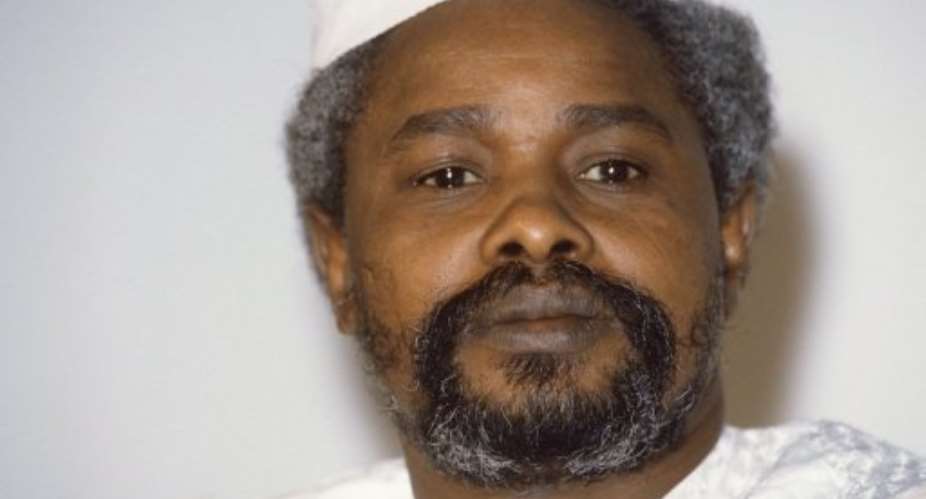DAKAR (AFP) - Senegalese authorities charged former Chadian dictator Hissene Habre with genocide and crimes against humanity and remanded him in custody on Tuesday in a prosecution seen by many as a milestone for African justice.
The 70-year-old was also charged with war crimes and torture during his eight years in power in Chad, where rights groups say 40,000 people were killed under his rule, a court source and his lawyers told AFP.
Habre's legal team said genocide was among the main charges he faced and that he would be remanded in custody in Dakar.
Habre -- once dubbed "Africa's Pinochet" -- had been in a police cell in the Senegalese capital since his arrest on Sunday at the home he shares with his wife and children, according to a security source.
Mbacke Fall, a prosecutor with a special court set up in February to try Habre, told a media conference on Monday he wanted Habre kept in custody after finding "serious and corroborating evidence of war crimes, crimes against humanity and torture".
He added that prosecutors considered Habre to have "prime responsibility for the repression" carried out during his reign in Chad from 1982 to 1990.
Delayed for years by Senegal where he has lived since being ousted in 1990, Habre's trial will set a historic precedent as until now African leaders accused of atrocities have only been tried in international courts.
Typically dressed in combat fatigues during the years of his rule, Habre earned the nickname "desert fighter" after he seized power in 1982 from former rebel ally Goukouni Weddeye during a long conflict with Libya, which wanted to annex the north of Chad.
His regime was marked by fierce repression of his opponents and the targeting of ethnic groups, and in 1990 he fled to Senegal after being ousted by incumbent president Idriss Deby Itno, who hailed Habre's arrest as a step toward "an Africa free of all evil, an Africa stripped of all dictatorships".
A decade later a group of victims filed charges against him in Senegal, but he has never been brought to trial and former president Abdoulaye Wade repeatedly tried to "get rid of him".
Senegal and the African Union signed an agreement in December to set up the court to try Habre for the offences.
The AU had mandated Senegal to try Habre in July 2006, but the country stalled the process for years under Wade.
Habre was also wanted for trial in Belgium on war crimes and crimes against humanity charges after three Belgian nationals of Chadian origin filed suit in 2000 for arbitrary arrest, mass murder and torture.
Macky Sall, Wade's successor who took office in April last year, ruled out extraditing Habre to Belgium, which was prepared to try him, vowing to organise a trial in Senegal.
In May, lawyers for Habre said they had filed a lawsuit in Senegal to try to prevent the trial from going ahead, saying the west African country had violated his human rights.
His lawyers have complained that he was "illegally seized and taken away by force" from his home.





 Nursing and teacher trainee allowances to be paid by next week — Bawumia
Nursing and teacher trainee allowances to be paid by next week — Bawumia
 Guarantor system being used to facilitate registration of unqualified persons — ...
Guarantor system being used to facilitate registration of unqualified persons — ...
 Amplify our campaign against registration of minors, foreigners — EC to media
Amplify our campaign against registration of minors, foreigners — EC to media
 I'm not going to pay churches; that was just a joke — Bawumia
I'm not going to pay churches; that was just a joke — Bawumia
 My comment about paying churches just a joke — Bawumia
My comment about paying churches just a joke — Bawumia
 Election 2024: Retrieve all guns from civilians – GUM to govt
Election 2024: Retrieve all guns from civilians – GUM to govt
 Collapse of Zamboree school building: 20 pupils narrowly escape death at Assin N...
Collapse of Zamboree school building: 20 pupils narrowly escape death at Assin N...
 “Don’t take the country’s peace for granted” – Asantehene caution Ghanaians
“Don’t take the country’s peace for granted” – Asantehene caution Ghanaians
 NPP will win 2024 election with a strategy NDC won’t understand – Sammi Awuku
NPP will win 2024 election with a strategy NDC won’t understand – Sammi Awuku
 Dialysis patients in Ghana lament as treatment costs soar from GHS380 to GHS 491
Dialysis patients in Ghana lament as treatment costs soar from GHS380 to GHS 491
